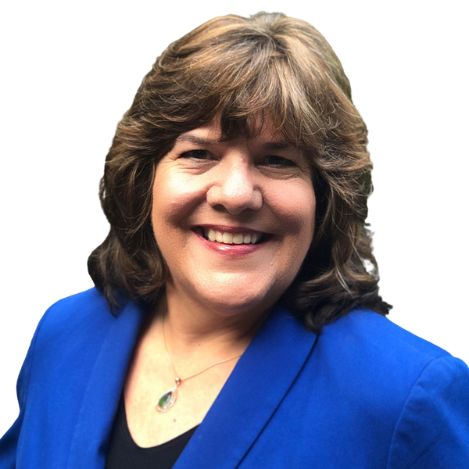Here are the top 5 things that are holding you back…
We asked four Delve Executive Coaching cadre members – Jeff Balesh, Katy Breuer, Michelle Mehta and Cammela Teel – about mistakes they see coaching clients make. Their top picks?
- Waiting until you are in a crisis to get a coach
- Expecting your coach to drive the agenda
- Avoiding your homework!
- Skipping coaching appointments
- Not asking for feedback
#1 Waiting until you are in a crisis to get a coach
Does this sound like you? “I think I’m about to be fired. Can you help me?”
When you start a coaching relationship during a crisis, your first priority is the situation at hand – like a sudden, unwanted change in responsibilities or potential dismissal.
Katy Breuer says. “When you know a big change is imminent, you have missed an opportunity to position yourself well for the change. Don’t wait until you see warning signs to find an effective coaching relationship. Get help early.”
Coaching is about identifying growth areas, trying out new skills, and uncovering hidden beliefs or personal blockers that hold you back. This doesn’t happen quickly. Give yourself time to develop shared insights and a trusting relationship with a coach. Then, together, you can address or diffuse a potential crisis before it forms.
Coaching is not about simple solutions; it is about surfacing and questioning deep-seated beliefs and patterns. Don’t wait for a crisis to begin the conversation.
#2 Expecting your coach to drive the agenda
Cammela Teel says, “If your attitude towards your coach is ‘Tell me what to do,’ that is a sign that you are seeking a proscribed plan of action. This isn’t a coach’s role, and in fact may work against your progress.”
Michelle Mehta adds that the International Coaching Federation (ICF) is very clear: the person being coached sets the agenda. During the kick-off phase, be honest with yourself and your coach what you hope to achieve. Your goals (and growth areas) may evolve as you move through the assessment and coaching process, but it is important to articulate why you are seeking executive coaching in general terms.
Jeff Balesh says that coaches want their clients to succeed, and they have to resist the temptation to set goals or agendas for their clients. He adds, “The coaching process is about surfacing motivations, beliefs and attitudes. The coach’s role is to facilitate the conversation that the client is having or needs to have with themselves if they are to move towards their desired future. Much of what the coach does is hold space for the client to have these emergent conversations that require air to breathe and take shape, but it is up to the client to fill that space with courage and curiosity.”
Your coach isn’t in the driver’s seat. You are.
#3 Avoiding your homework!
Jeff says, “The most important predictor of success in coaching is whether or not the client is motivated and truly committed to the often challenging work of confronting deeply held beliefs. While this work is typically where the real value in coaching lies, it requires effort and commitment.”
Cammela agrees, saying that when clients avoid the homework at the end of a session, they miss out on valuable opportunities for growth. “Coaching doesn’t just take place during scheduled meetings. Expect to do ‘homework,’ whether it is reflecting on your coaching session or putting skills discussed into action.”
She adds, “Transformation happens outside of coaching” – where you push further and try new things.”
#4 Skipping coaching appointments
Don’t say this: “There isn’t anything going on so I’m canceling my coaching appointment.” or, “I didn’t do my homework so let’s reschedule.”
Katy says “There doesn’t need to be a crisis to meet with your coach. Leverage the time that you have and keep things moving.”
She gives an example of a client who used coaching to execute a long-term goal:
Katy’s client started a job with a company that only considered promotions for new hires after their second anniversary on the job. Her client wanted to be considered for a promotion at the earliest opportunity. Together with Katy, the client worked backwards from her goal and developed a plan:
- The client wanted to be eligible for a promotion in 2 years
- Client believed she needed to work on a specific project to be considered for promotion
- Client needed to meet and convince project managers to put her on the project team
- Client needed to network with people who could introduce her to the project managers
- Client needed to update her resume to network effectively
- Client needed a mentor
Katy and her client developed and tracked this long-term plan during regularly scheduled monthly meetings. No crisis needed!
Katy says that clients often ask how often they should meet. Her answer? “It depends on how quickly you want to move. How much do you want to do on your own and how much do you want to do with a thought partner?” Most coaches meet with their clients around twice a month, but the frequency is at the client’s discretion.
Have regular meetings, with a clear and straightforward plan to succeed.
#5 Not asking for feedback
Your coach will have great insights to share with you, but they won’t get to see you put your new skills into action. If you have an internal sponsor, enlist their help in evaluating your growth.
Since the coaching relationship is confidential, you won’t need (or want) to share every detail of your coaching sessions. But you can share the general areas that you are working on, and you can ask your sponsor for feedback.
Michelle recommends that you ask your sponsor, “Are you seeing a difference in this area for me? Where am I nailing it and where can I do more?”
If you don’t have a sponsor, consider asking a close colleague, peer, or supervisor to help provide feedback.
Get the most from your investment
Executive coaching is an investment. Make it worth your time and money.
Begin early, know where you want to start, and be open to where this remarkable journey can take you.
You will be in the driver’s seat, and your motivation to challenge yourself will make the difference.
To learn more about executive coaching, reach out to us! We are here to answer your questions.






